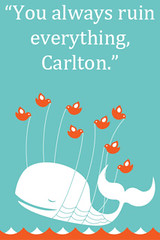 If you read the news, watch the TV or listen to the radio, there are boundless experts offering their advice on the state of the world. Clearly we are in the grip of a global economic crisis inflicted on the many by the greed of a few. Yes, we should be concerned about potential pandemics such as pig flu. And no doubt, the wars in Afghanistan and Iraq – not to mention the instability across central Africa, Israel, Fiji and a score of other nations – all make us feel a little less safe.
If you read the news, watch the TV or listen to the radio, there are boundless experts offering their advice on the state of the world. Clearly we are in the grip of a global economic crisis inflicted on the many by the greed of a few. Yes, we should be concerned about potential pandemics such as pig flu. And no doubt, the wars in Afghanistan and Iraq – not to mention the instability across central Africa, Israel, Fiji and a score of other nations – all make us feel a little less safe.
Yet despite the realities facing us all, there are individuals, small groups and even communities all working in their own way to transform situations. I am constantly astounded by the willingness, energy and commitment of people to do good things, to donate their skills, their abilities and their time for those that they love or who simply need help. And while our institutions continue to lag behind this progressive consensus, they too, are peopled by others “like us” – and will, at some point, have no choice but begin their own transformation. The question is just of timing.
Against this backdrop, I was invited by Ian Fitzpatrick to contribute to the Optimist Conspectus which is “a compendium of contemporary optimism, one perspective at a time”. You can read my view here, but there are many other brilliant perspectives, including Dirk Singer (read his blog too), Matt Moore (read his blog as well) and a host of others.
And I loved the grain of optimism in this from Nishad Ramachandran:
Coming from a nation that has more young people than old, more illiterates than literates, more needy than greedy you just got to believe that tomorrow will be better and that hope will ultimately triumph over gloom.
You can even add your perspective here. Or maybe that is being too
optimistic?!



 When I first started blogging I was obsessed with inbound links. I checked
When I first started blogging I was obsessed with inbound links. I checked 


